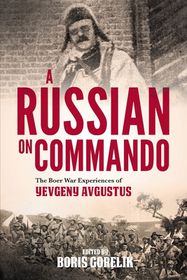Having recently read this book and been impressed by it's novel approach I wanted to know more about "W Baring Pemberton. The 1972 edition by Pan Books did not have the usual blurb about the author.
Thankfully he was an active member of the community in West Sussex where he lived so I quickly learnt about an erudite man of varied interests. But, the first two-thirds of life were a blank. How could a name like "W Baring Pemberton" not exist in newspapers or even the census?
I stumbled on his birth name, "Noel William Baring Pemberton" - Noel! or Noël - those four letters unlocked his life story.
He does not appear to have pursued a career in law, preferring a career in the arts. In 1932 he was listed as a Director of Flicker Productions with studios at Shepperton, they aimed to produce six “book movies” on “sport and other subjects”. [Kinematograph Weekly 04 February 1932] In 1933 he was credited with adapting a story for the film “Watch Beverley” (rated U). 1936 saw his first history book published, Carteret, The Brilliant failure of the eighteenth century that was well received. A reviewer in Truth [3 June 1936] wrote “This is a book which will probably appeal more to historians than to the general public, for although readable throughout, and is often enlivened by strokes of Mr Pemberton’s dry and incisive wit, it assumes…a knowledge greater than most lay readers are likely to possess.” Encouraged, he produced a biography of Lord North in 1938 “directed at the serious historian and specialist”.
The outbreak of the Second World War interrupted his writing career, in 1940 he took a post at Eton college teaching history. The end of the war bought another chapter, he moved his family to West Sussex living at Morriswood, Holbrook, Horsham and Manor House, Billingshurst. Not forgetting his law training he became a magistrate in Horsham, joined the local Conservative Association. In 1949 he published a biography of William Cobbett. In 1952 his first play “Cactuses and Kings” had its premiere at the Court Royal, Horsham. The play had been written before World War II. Described as a satirical comedy about King Boris who, in league with republicans, agrees to stage a fake revolution forcing him to abdicate and live a comfortable life in retirement with his “beloved cactuses” (sic). [The Stage 7 February 1952] I think he would have enjoyed the irony of his story with the reality the UK has suffered in recent years with the real life Boris. He became Chair of the Theatre Royal Guild & Theatre Club. Just two years later he published a biography of Lord Palmerston in 1954, again well received, “a straightforward, informative, and readable life”.
Noel’s art career expanded to broadcasting and he was
regular lecturer to local societies on historical topics. His talents extended
to music as an Associate of the Royal College of Music, a “talented pianoforte
player” [West Sussex Gazette 1 November 1956] , and painting joining the Association
of Sussex Artists. He was also a member of the Circle of Glass Collectors.
1962 saw his first foray into military history with “Battles of the Crimean War”,
noted for his “considerable research on both published and unpublished sources”.
Perhaps, encouraged by this work he became a member of the executive committee of
the National Army Museum. Working quickly his second military history work was
published in 1964, “Battles of the Boer War”.
He sets out his stall with admirable honesty and intelligence. Admitting he “must tend to be one-sided…. Unfortunately the best Boer accounts have never been translated and I know no Afrikaans.” He ignores “nearly all accounts written by ‘Our Special Correspondent in South Africa’. Except when from the pen of Winston Churchill, these are of little worth and deeply coloured by prejudice. Accepted avidly by a jingoist British public, they passed into common currency where they are still found.” A statement that rings true today for the “history” written by the inheritors of the victory in 1910. A large number of personal papers were read from key actors and witnesses such as Lord Methuen, General Pole-Carew, Hughes-Hallett, Birdwood, Hubert Gough and a host of officers from the artillery and infantry. In seeking balance he also corresponded with people in South Africa. The result is a startling analysis of each battle in three acts; prelude, (in)action, consequences. Criticism is freely offered and the recollections of some, such as Buller, are forcibly rebuked.
Baring Pemberton also earns praise for his treatment of the casus belli, “…it was not as simple as that”. In just a few pages he clearly lays out the complexities of the history, politics, economics and personalities that led to the invasion of the British colonies.
I think this book deserves a wide audience; it won’t break the piggy-bank. The book was re-published in 1969, 1972 and 1975.
W Baring Pemberton died 3 November 1966, not knowing the
success of his last book. He led a varied and interesting life and left a lasting
legacy. Thank you.




